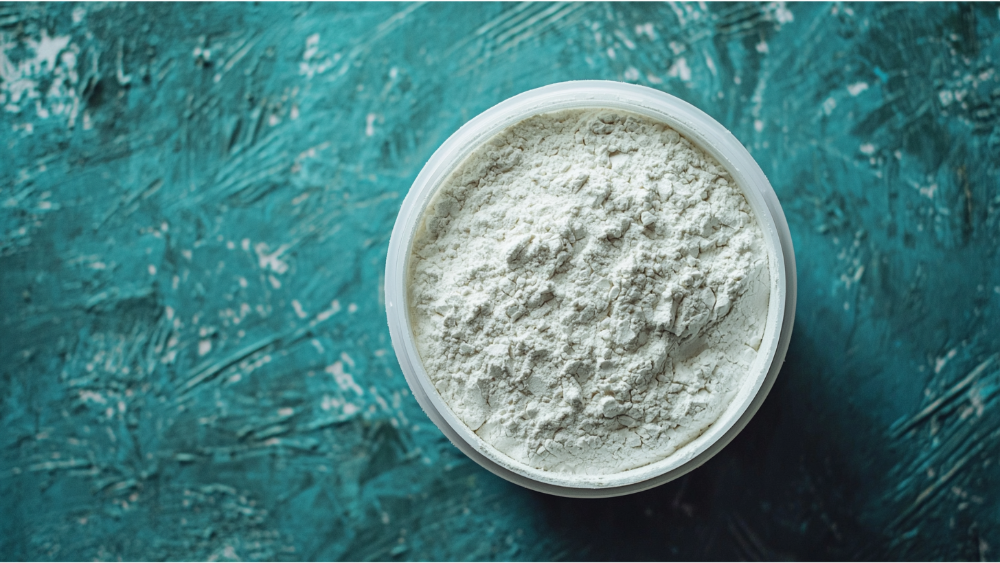L-Carnitine is an amino acid derivative crucial for energy production, often found in the body’s muscles, heart, and brain. Unlike essential amino acids, L-Carnitine is conditionally essential, meaning that while our body typically produces enough, certain conditions, diets, and lifestyles may warrant additional supplementation.
The body synthesizes L-Carnitine in the liver and kidneys from two amino acids, lysine, and methionine, with support from essential nutrients like vitamins C, B6, niacin, and iron. This process ensures that even individuals with minimal dietary intake still maintain adequate levels for general health.
Why It’s Considered “Conditionally Essential”
Most healthy adults produce sufficient L-Carnitine, but those with specific health issues or certain dietary restrictions, like vegetarians and vegans, might benefit from supplementation. In these cases, L-Carnitine is considered conditionally essential, as the body’s production may not meet their unique physiological needs.
The Different Forms of L-Carnitine

L-Carnitine exists in several forms, each tailored to particular uses and functions. Understanding the types helps individuals select the best supplement for their goals.
L-Carnitine (Standard Form)
L-Carnitine is the most common form, widely used for its role in cellular energy production, fat metabolism, and exercise recovery. It’s particularly useful for those seeking support in muscle endurance and recovery.
Acetyl-L-Carnitine (ALCAR)
Known for its brain-enhancing effects, Acetyl-L-Carnitine is prized for crossing the blood-brain barrier, making it effective for supporting cognitive function and potentially protecting against age-related decline. Studies suggest it might improve alertness, memory, and overall brain health【8†source】【9†source】.
Propionyl-L-Carnitine
This form is primarily used for cardiovascular health and blood flow improvement. By helping the body better manage blood flow, Propionyl-L-Carnitine may benefit individuals with peripheral vascular disease or other circulatory issues【10†source】.
D-Carnitine
D-Carnitine, an inactive form, is generally avoided as it can interfere with L-Carnitine’s efficacy. It lacks the biological benefits of other forms and may even pose risks if taken in large amounts.
Health Benefits of L-Carnitine
Fat Metabolism and Weight Management
L-Carnitine transports fatty acids to mitochondria, where they are broken down to produce energy. This process enables the body to use fat as fuel, making L-Carnitine popular in weight management supplements.
Supporting Weight Loss
While not a magic solution, L-Carnitine aids fat metabolism, which, combined with diet and exercise, may enhance weight loss efforts. Some studies indicate that it may contribute to modest weight reduction and improved fat oxidation.
Exercise Performance and Muscle Recovery
Athletes often supplement with L-Carnitine to increase endurance. It helps delay muscle fatigue, allowing for more extended training periods. By enhancing blood flow and reducing lactic acid buildup, it supports stamina and minimizes discomfort.
Post-Workout Recovery
L-Carnitine may reduce muscle soreness and speed up post-workout recovery, making it a staple in the supplement routines of many fitness enthusiasts and athletes.
Heart Health
Research suggests L-Carnitine may lower blood pressure and improve cholesterol levels. It can reduce LDL (“bad”) cholesterol while raising HDL (“good”) cholesterol, supporting heart health.
Benefits for Individuals with Heart Disease
For people with heart conditions, L-Carnitine might offer significant benefits. It has been shown to improve heart function and reduce symptoms in people with congestive heart failure, potentially lowering the risk of complications.
Cognitive Support
Acetyl-L-Carnitine (ALCAR) benefits the brain by enhancing alertness, improving memory, and potentially delaying cognitive decline. Some studies indicate its use in Alzheimer’s prevention, though more research is needed for conclusive evidence.
Potential Benefits for Neurodegenerative Diseases
ALCAR may support those with neurodegenerative diseases, such as dementia and Alzheimer’s, though its application is still under study. Early results suggest it may slow disease progression by protecting brain cells.
Blood Sugar Regulation
L-Carnitine might improve insulin sensitivity, thus benefiting blood sugar regulation. This could be helpful for individuals with insulin resistance or those looking to manage their blood glucose levels.
For diabetics, L-Carnitine may offer metabolic health support, potentially aiding in blood sugar control when combined with other treatments.
Sources of L-Carnitine

Animal-Based Foods
Red meat (especially lamb and beef), fish, and dairy are rich sources of L-Carnitine. Meat-eaters typically get enough from their diet, while vegetarians and vegans may need to monitor their intake more closely.
Plant-Based Sources
While plant-based foods like avocado and tempeh contain small amounts, they fall short in comparison to animal products. Vegetarians or vegans may consider supplements to meet recommended levels.
Endogenous Production
L-Carnitine synthesis depends on sufficient levels of vitamins and minerals like C, B6, niacin, and iron. Deficiencies in these nutrients can hinder natural production, leading to low L-Carnitine levels.
Certain health conditions, such as genetic disorders or advanced age, can impair L-Carnitine synthesis, making supplementation more necessary.
Supplementation
L-Carnitine supplements are available in capsules, powders, and liquids. The most popular forms are L-Carnitine and Acetyl-L-Carnitine, tailored for energy production and cognitive benefits, respectively.
Those with specific health concerns, athletes, or vegetarians may benefit from supplementation. Consulting a healthcare provider can help determine the correct dosage for individual needs.
Recommended Dosage and Usage Guidelines
Typical dosages range from 500 mg to 2,000 mg daily, depending on the desired benefit. Higher dosages should be supervised by a healthcare provider.
For cognitive support, Acetyl-L-Carnitine is often recommended at 1,000–1,500 mg, while those focused on exercise recovery might prefer L-Carnitine L-Tartrate in similar dosages【15†source】.
Timing and Absorption Tips
Many take L-Carnitine with meals or carbohydrates to boost absorption. Timing around workouts may enhance exercise-related benefits.
Studies suggest L-Carnitine is best absorbed alongside carbohydrates, making pre-workout a strategic time for athletes.
Special Considerations
Athletes with high energy demands may see performance improvements and faster recovery times with L-Carnitine, especially when combined with regular exercise.
Since plant-based diets offer minimal L-Carnitine, vegetarians and vegans should monitor their levels and consider supplementation if needed.
Potential Side Effects and Risks
Common Side Effects
High doses of L-Carnitine can cause nausea, diarrhea, and abdominal cramps. Gradual dosage increases can help mitigate these symptoms.
In some cases, users report a “fishy” body odor, due to the production of trimethylamine. This odor can be managed by adjusting the dosage.
Long-Term Use and Safety Concerns
Some research indicates that long-term, high-dose L-Carnitine supplementation may increase cardiovascular risk due to the production of TMAO (trimethylamine N-oxide). It’s advised to consult a healthcare provider before prolonged use.
Moderate dosages under 2,000 mg per day are generally safe, though higher amounts should be medically supervised.
Contraindications and Drug Interactions
L-Carnitine may interact with certain antibiotics and anticonvulsants. Discussing supplements with a healthcare provider can prevent potential interactions.
Individuals with kidney issues, high blood pressure, or seizure history should consult a healthcare provider before taking L-Carnitine.
Who Should Consider L-Carnitine Supplementation?

Individuals with Carnitine Deficiency
Some genetic conditions lead to primary or secondary carnitine deficiency, where supplementation is essential for health.
Athletes and Fitness Enthusiasts
Athletes often benefit from L-Carnitine supplements due to the compound’s role in improving endurance and reducing muscle fatigue. By supporting fat metabolism and aiding recovery, L-Carnitine helps sustain energy levels during workouts.
Older Adults
Older adults may find Acetyl-L-Carnitine beneficial for supporting cognitive health, potentially helping to reduce age-related cognitive decline. L-Carnitine’s effect on muscle mass and strength can also aid in maintaining physical vitality.
People with Heart or Metabolic Conditions
Individuals with heart conditions or those seeking to improve heart health can benefit from L-Carnitine’s potential effects on blood pressure, cholesterol, and blood flow, particularly if used under medical supervision.
Blood Sugar Control for Diabetics
L-Carnitine has shown promise in improving insulin sensitivity and supporting blood sugar regulation, which could be beneficial for people managing diabetes.
Conclusion
L-Carnitine plays a crucial role in fat metabolism, energy production, and cognitive support. It is especially beneficial for those looking to enhance exercise performance, manage heart health, and support cognitive function in older age.
While a balanced diet with adequate red meat, fish, and dairy generally meets L-Carnitine needs, specific individuals may benefit from supplementation. Consultation with healthcare providers ensures that supplementation is safe, particularly for those with existing health conditions or dietary restrictions.
L-Carnitine stands out as a versatile nutrient that can support various aspects of health, making it a valuable supplement for targeted use.




Leave a Reply